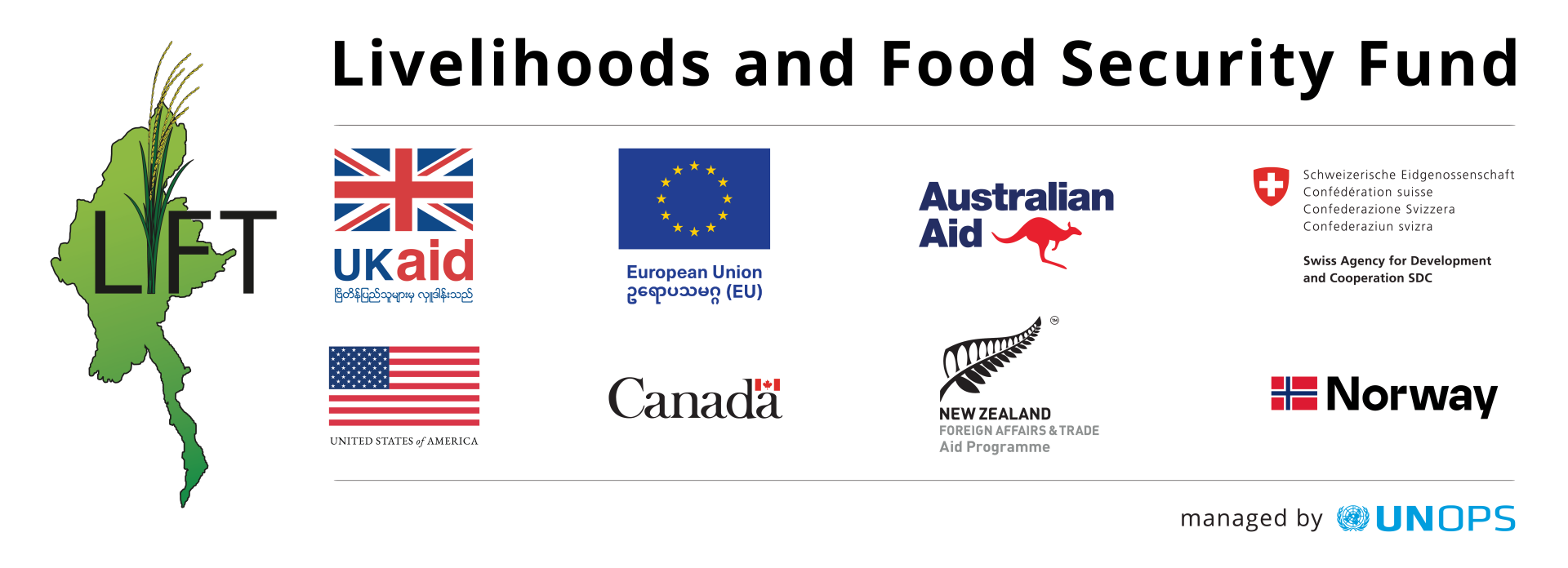The 1000 Days video was made by the LEARN project to share the importance of good nutrition in a child's first 1000 days, from conception through to its second birthday (Myanmar language).

Dr Joanne Raisin is a Livelihoods and Conflict Advisor at the UK’s Department for International Development (DFID). She has previously worked for a number of development institutions including USAID, World Bank and the EU before joining DFID in 2005. A specialist in the transition out of emergencies and tackling hunger globally, Jo spent 14 years working in the Horn of Africa.
She has worked extensively on cash transfers programmes to the poor and was the principal architect of many of Africa’s new wave social safety nets. In 2003, she received the US Meritorious Honour Award for her outstanding contribution in saving the lives of 14.2 million people threatened by famine, and in 2005, she received the UK’s Africa Achievement Award in recognition of her work to change the way the world responds to hunger.
Jo is an active member of the Livelihoods and Food Security trust Fund (LIFT) and chairs the LIFT Donor Consortium. She is based in Yangon with DFID. You can reach her at j-raisin@dfid.gov.uk
It’s March already – nearly two weeks after the Fund Board meeting - and LIFT Fund Management Office is cracking the whip for another donor blog contribution. So, under the lash, I’ll be looking at ‘hanging in’ – another pillar of LIFT’s new strategy – and using some of the Fund Board decisions of the last two weeks to bring our strategy to life.
We have talked about how the vast majority of rural households in Myanmar will see at least some of its members ‘step out’ into the non-farm economy or migrate over the next decade. Myanmar migrants send home an estimated $8 billion every year - $4 billion alone from Thailand. This is nine times more than the $870 million in ODA grant financing (e.g., aid) provided in 2013. It would be remiss of us not to work with that. LIFT will support migration (from both the sending and receiving side) through the newly approved ‘migration window.’ This will seek proposals to strengthen opportunities to the rural poor through, for example, off-farm (and migrant) skills development and certification, facilitating remittances, strengthening migrant networks and migrant rights. You should hear more about this migration window from LIFT in the near future.
There will always be some households who do not ‘step out’. For some, the reason might mean they are wealthy enough not to do so. At the other end of the spectrum are the poorest and most marginal – those who most need to ‘step out’ but are least able to do so because they lack available adult labour, aren’t part of a migrant social network, or are too old to work and/or have a high number of dependents. These households often live in areas highly vulnerable to drought and cyclones and experience high levels of food poverty, expressed in high levels of stunting in under fives. Last month, the Fund Board approved a potentially life changing nutrition programme for the Dry Zone. This will focus support for children in the first 1000 days of life from conception to two years of age. Children who get the right nutrition in this time are: 10 x more likely to overcome the most life threatening childhood diseases; complete an average of 4.6 more grades of school; go on to earn 21% more in wages as adults; and more likely as adults to have healthier families.
Nutrition and social protection is a big part of how we help people ‘hang in’ – while we help build the capability for the next generation to ‘step out’. The programme will aim for blanket coverage of cash grants to pregnant, breastfeeding women and children under two years of age across six townships over a three year period. This builds on a a pilot we are supporting in Rakhine through the Tat Lan Programme (which I’m looking forward to visiting in the next two weeks). The programme will also provide nutrition education and and improved sanitation – critical to reduce stunting in the first 1000 days.
LIFT will also be supporting broader efforts on social protection through all our geographical windows with cash based approaches as part of ‘hanging in’. As the UK, and a major donor to LIFT, getting cash into the hands of the poorest and most vulnerable is a key policy objective. We know that cash transfers globally have been critical in reducing the vulnerability of the poor with spill-over effects for education and health. It gives people choice and dignity and can help some get back on the ladder of productivity. And it is value for money – more of our $ gets to the person who needs it most. But in this approach, LIFT will be ensuring that our support does not undermine existing community social protection systems. Alongside our new maternity cash grant programme, we also approved a pilot project in the Dry Zone to test community based social protection systems which will inform future programming.
We know it’s not all about social protection – we must also help households become more resilient, especially in the face of climate change. Myanmar is in the top ten low-income countries most vulnerable to climate change - threatened by sea level rise and storm surges in coastal and Delta areas, and by drought in the Dry Zone. The probability that an individual resides in a zone threatened by storm surges will increase from 2.8 million to 4.6 million in Myanmar by 2050. Preparing for and adapting to climate change in the agricultural system is critical for food security in Myanmar and a central part of the strategy and our new approach in the Dry Zone, Delta and Rakhine.
So, all told, a really exciting time for LIFT with some major shifts in approach. But how all this pans out on the ground – and changes the lives of the rural poor – will depend on the strength of the proposals we receive from our partners. And in that regard, we are looking forward to working with you following the current call for proposals for the Delta 3 programme, and upcoming call for the Dry Zone.
Jo


